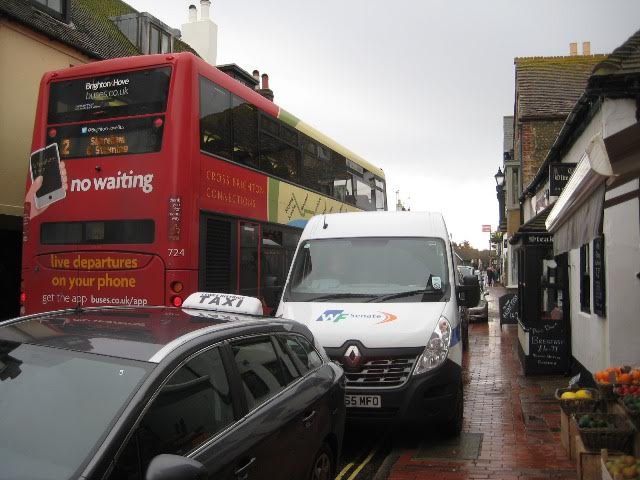Labour rules out ULEZ for Brighton and Hove

A senior Labour councillor said that the council had no plans to introduce an ultra-low emission zone (ULEZ) in Brighton and Hove.
Trevor Muten spoke out after anti-ULEZ campaigner Laura King voiced fears that drivers could face paying a £12.50 daily charge as they do in central London.
Ms King presented a petition headed “No to ULEZ or other discriminatory traffic schemes in Brighton and Hove”, signed by more than 2,000 people, to Brighton and Hove City Council last week.
When she presented the petition at the full council meeting last Thursday (20 July), she linked the idea with the “car-free city” proposals put forward by the Climate Assembly.
But, because the petition did not have 1,250 signatures by the cut-off point of noon on Thursday 6 July, it was not debated at the meeting at Hove Town Hall.
Instead, it was referred to the next meeting of the council’s Transport and Sustainability Committee, on a date yet to be published.
Councillor Muten, who chairs the Transport and Sustainability Committee, said today (Tuesday 25 July) that there were no plans for a Brighton and Hove ULEZ.
He said: “The Labour administration is not pursuing a car-free city because it would be a catastrophe for our disabled residents, tradespeople and others who need to use cars to live with dignity and earn a living.
“We are, however, committed to a longer-term modal shift (swapping forms of transport) to a low-carbon transport system where EVs (electric vehicles) and hydrogen are considered the norm and combustion engine vehicles are phased out.
“We are taking a responsible and robust approach to addressing climate change but one which is tailored to Brighton and Hove and our need for an integrated, city-wide transport network.”
At the full council meeting, Ms King said that there had been no public consultation about a ULEZ and proposing one would be a “clear case of taxation without representation”.
She said that every traffic scheme, changes to Madeira Drive, other road closures and temporary cycle lanes created during the coronavirus pandemic were about creating engineered gridlock.
The purpose, she said, was to discourage visitors and residents from driving, irrespective of the lack of viable transport alternatives, with no park and ride and sketchy coach and train services.
She said that the changes were made irrespective of the economic cost to Brighton and Hove – and “presumably to drive emissions up in order to justify a ULEZ charging scheme”.
But, she said: “The proposed ULEZ and Low Traffic Neighbourhood (LTN in Hanover) schemes are both unnecessary – as Brighton and Hove is not a high-emissions industrial city – despite the council’s best efforts to make it so – but a breezy seaside city – 30 times smaller than London.”
Councillors first agreed to look into the idea of a car-free city by 2023 in January 2020, when former Green councillor Amy Heley received unanimous cross-party support for her motion asking for a report into costs and a feasibility study.
But when the report about creating a “liveable city” went before councillors again a year later – after a delay because of the pandemic – support was restricted to the Greens and Labour.
Former Conservative councillors Lee Wares and Vanessa Brown abstained from a vote in January 2021 that approved a further detailed report into options for a car-free city centre and a ULEZ covering a wider area.
At the time, Councillor Wares said that he wanted to see “real” consultation with residents rather than the council “dictating” to people.
At the same meeting, Labour councillor Gill Williams raised concerns about people accessing the Royal Sussex County Hospital accident and emergency department.
Her Labour colleague, councillor Gary Wilkinson supported more electric bike hubs and asked for a more detailed business case.